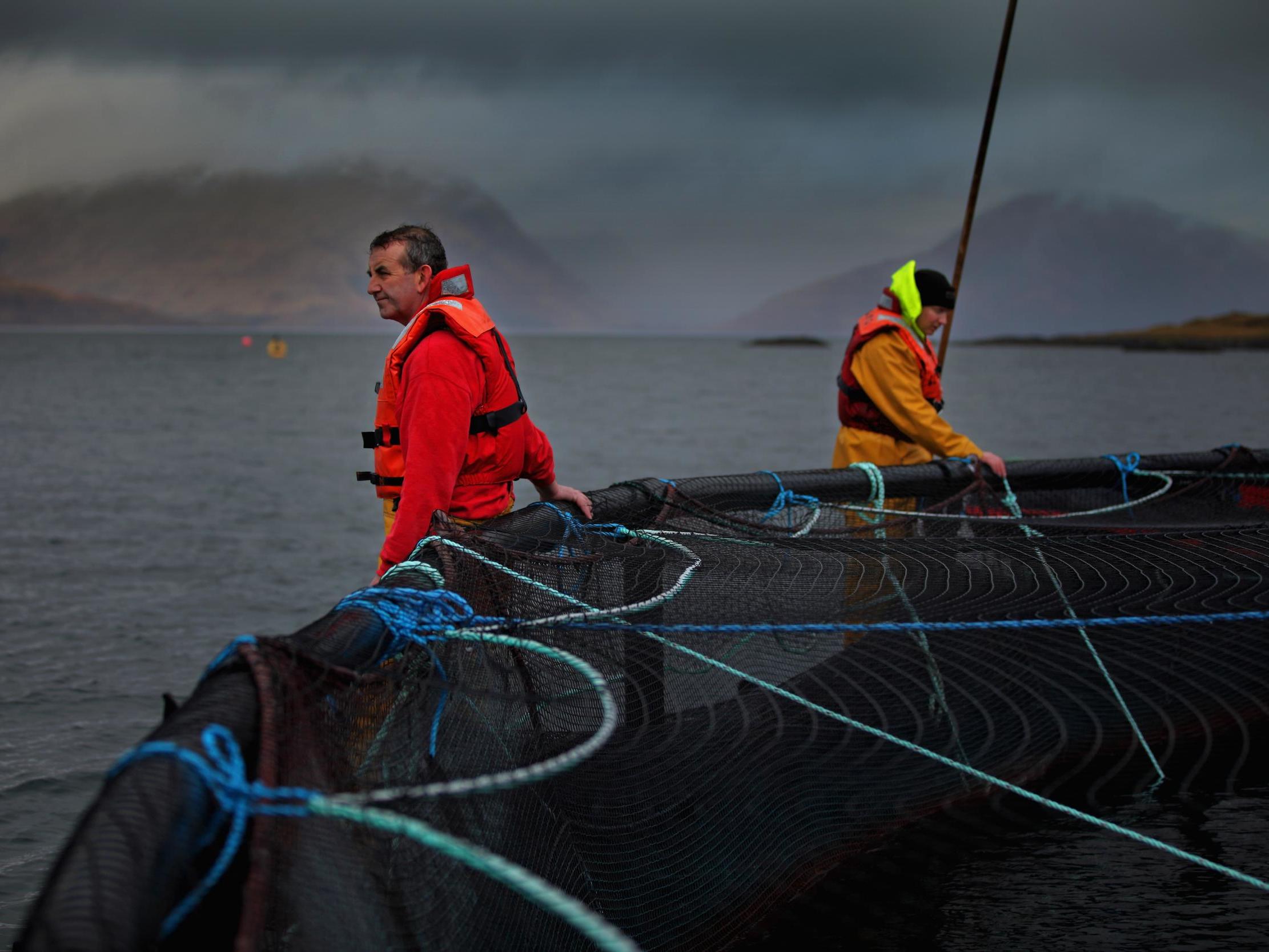Boris Johnson’s Brexit deal will place ‘huge unnecessary burdens’ on Scottish salmon, say producers of UK’s biggest food export
Britain sells more than £500m of Scottish salmon overseas but sector fears departure from EU will give foreign competitors ‘an advantage they would be unlikely to pass up’, writes Chris Baynes


Boris Johnson’s Brexit deal threatens to place “huge unnecessary burdens” on the Scottish salmon industry, the trade body for the sector has warned.
Increased red tape is likely to delay shipments of the UK’s biggest food export and cost farmers up to £8.7m, the Scottish Salmon Producers Organisation (SSPO) said.
The UK government’s plan to reject EU regulations means it “appears inevitable” that shipments of the fish will require export health certificates (EHC) following the end of the Brexit transition period on in December 2020, according the industry body.
EHCs are not currently needed because fish welfare and food safety rules are standardised under the free movement of goods within the EU.
The SSPO said the change would require the processing of 50,000 and 100,000 more certificates a year, with each one signed off by an environmental health officer or vet, and the hiring of extra staff at the main haulage distribution hub in Larkhall, South Lanarkshire.
It estimated this would cost the Scottish farmed salmon sector between £1.3m and £8.7m a year, depending on the fee charged by councils and the number of EHCs required per lorry load.
Additional checks would also cause hold-ups in the delivery of fish to the continent and give UK farmers’ international competitors “an advantage they would be unlikely to pass up,” the SSPC warned.
Julie Hesketh-Laird, chief executive of the SSPC, said: “We deal in a perishable product so it is crucial for the thousands of loyal customers we have in the EU that we get our fresh fish to key markets as quickly and smoothly as possible.
“The addition of an Export Health Certificate for every order of salmon to the EU would place huge unnecessary financial and bureaucratic burdens on our sector – potentially undermining one of the UK’s biggest modern export success stories.”
Exports of Scottish salmon were worth £505m in 2018, and figures to be released this week are expected to show the value of overseas sales surged to a record high last year.
Ms Hesketh-Laird said: “We now send more than £190m worth of salmon to France, a third of our total exports. Once in the main French markets, the salmon can then be dispatched to almost anywhere in the EU.
“About 300 salmon orders are dispatched to the EU every day by road and through the Channel Tunnel. If each one – or even each lorry load – had to have an extra certificate, signed by a vet or an environmental health officer, it would not only add delays and cost to Scottish salmon exports, it would give our international competitors an advantage they would be unlikely to pass up.”
The SSPC called for the government to make the issue a priority in negotiations with the EU.
“We want both sides to commit to allow seafood trade to the EU to continue as it now, without the imposition of any new tariff or non-tariff barriers,” its chief executive added.
A Department for Environment, Food and Rural Affairs spokesperson said: “We will inform industry later this year about actions they need to take to ensure they can continue trading after the transition period has ended.”
Fishing was a sensitive issue during the Brexit campaign, with supporters of the UK’s departure from the EU seeing access to British waters as a symbol of the country’s sovereignty.
While salmon farming is not part of the EU Common Fisheries Policy, firms fear exports could be penalised if foreign vessels are denied access to fish off the UK’s coast.
Join our commenting forum
Join thought-provoking conversations, follow other Independent readers and see their replies
Comments